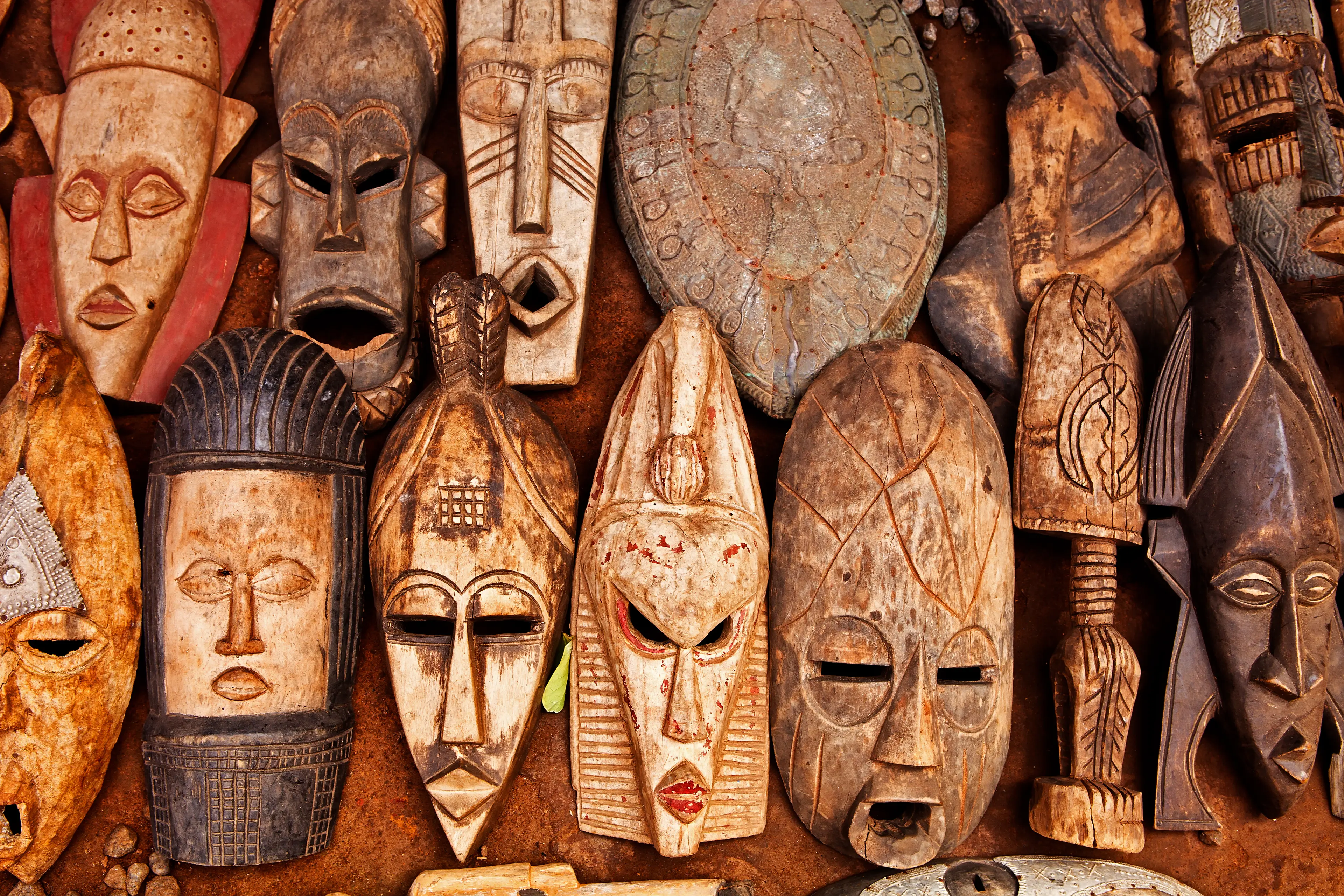4-Day Accra Culinary and Sightseeing Escape for Couples
Accra, Ghana
4 days
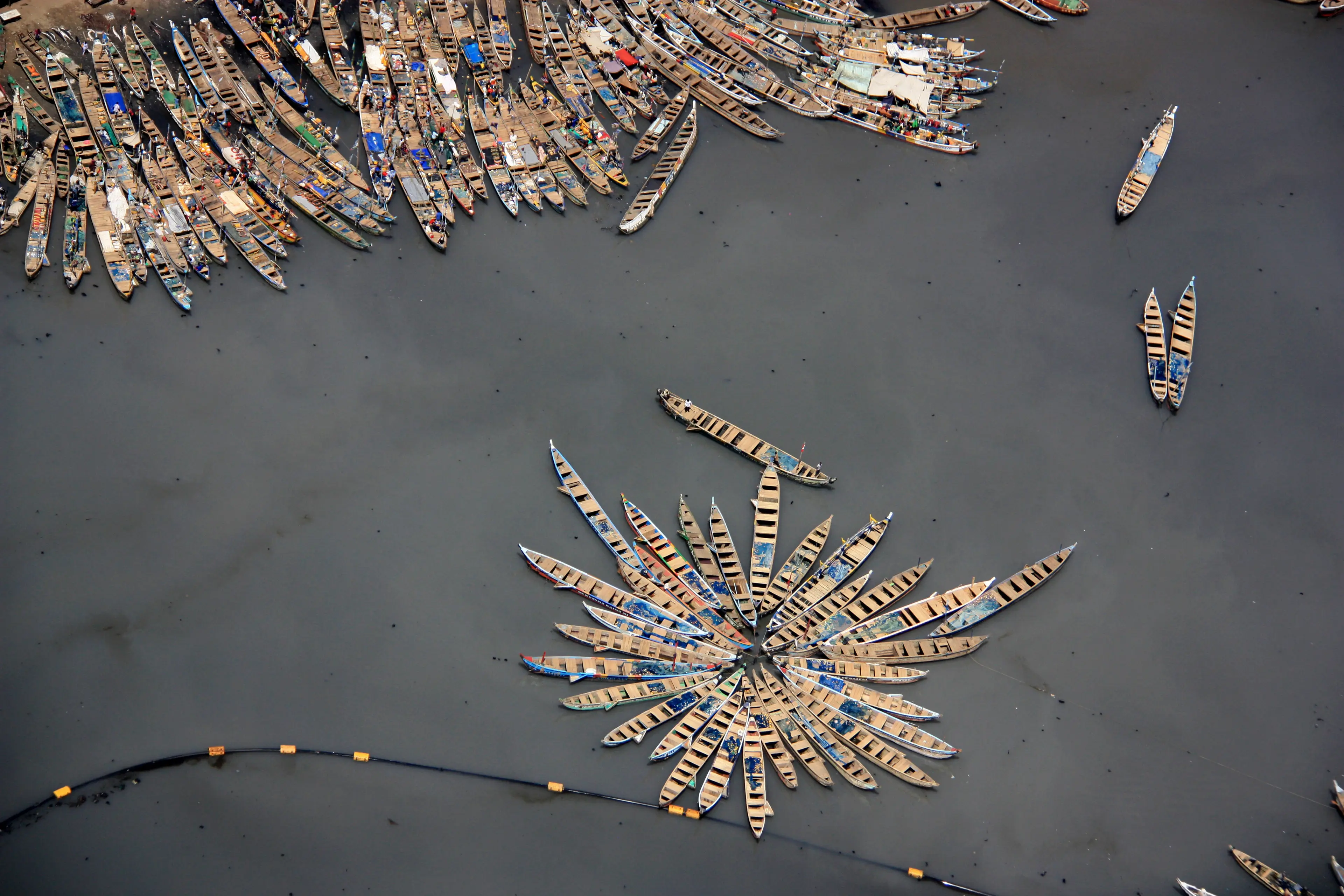
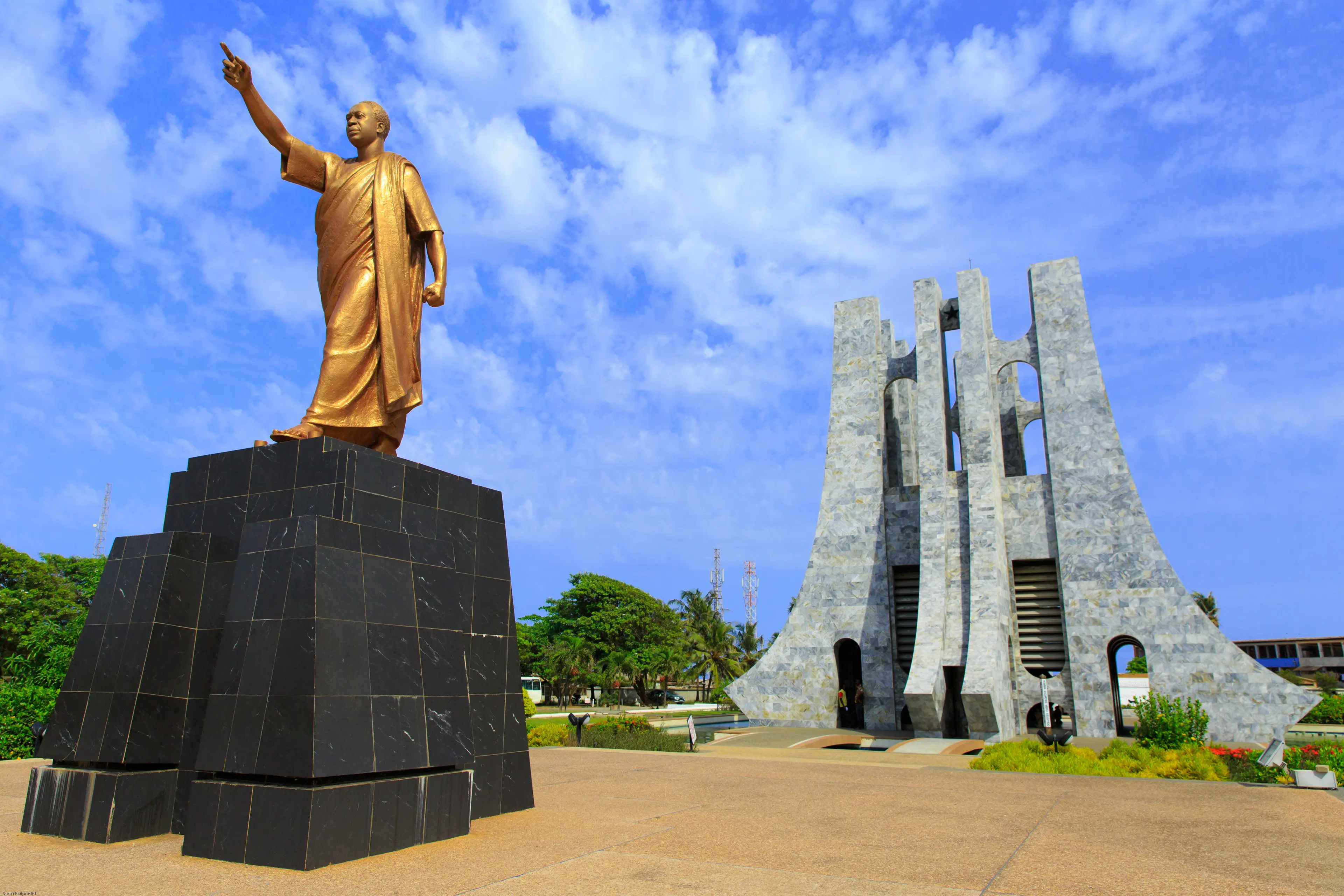
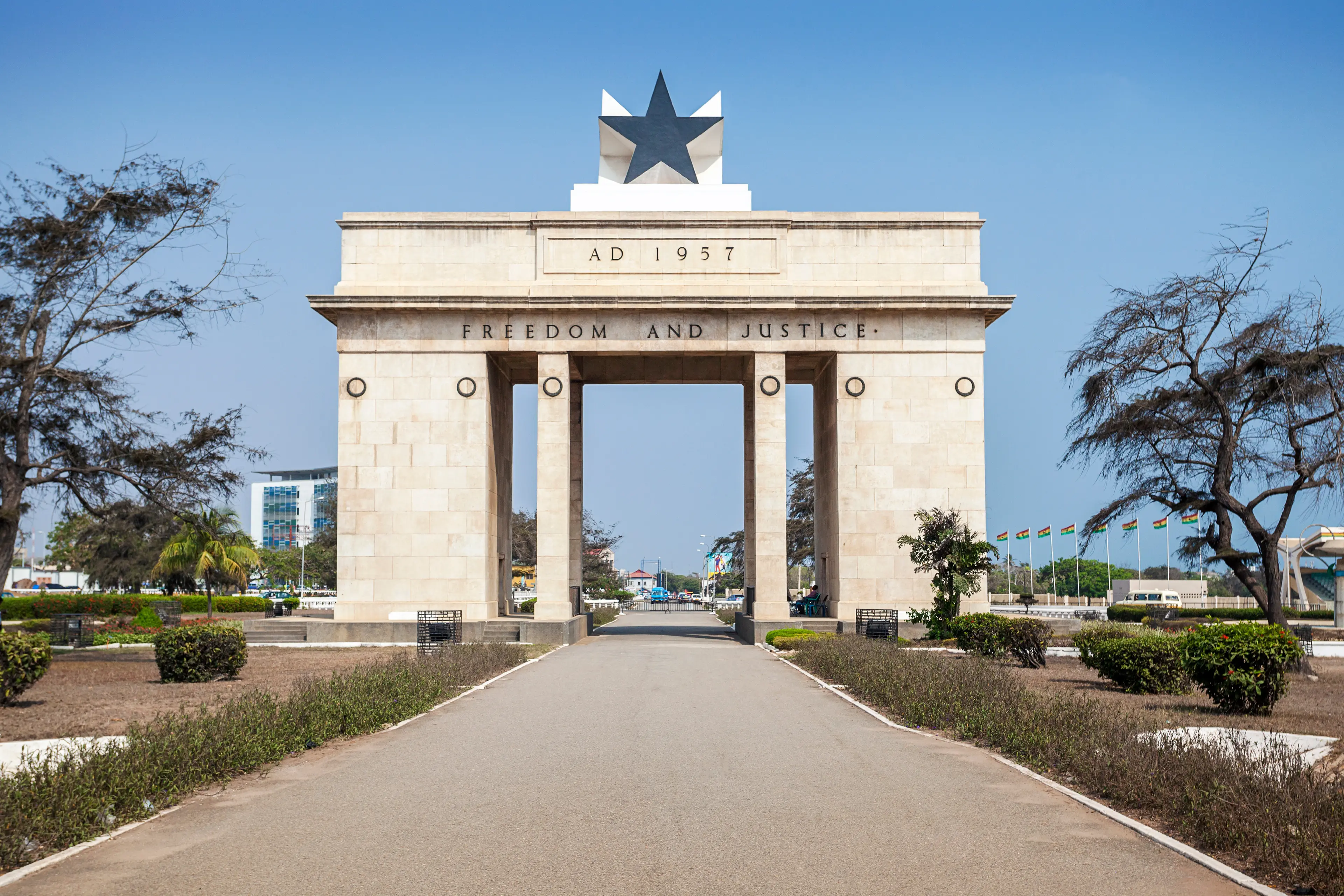
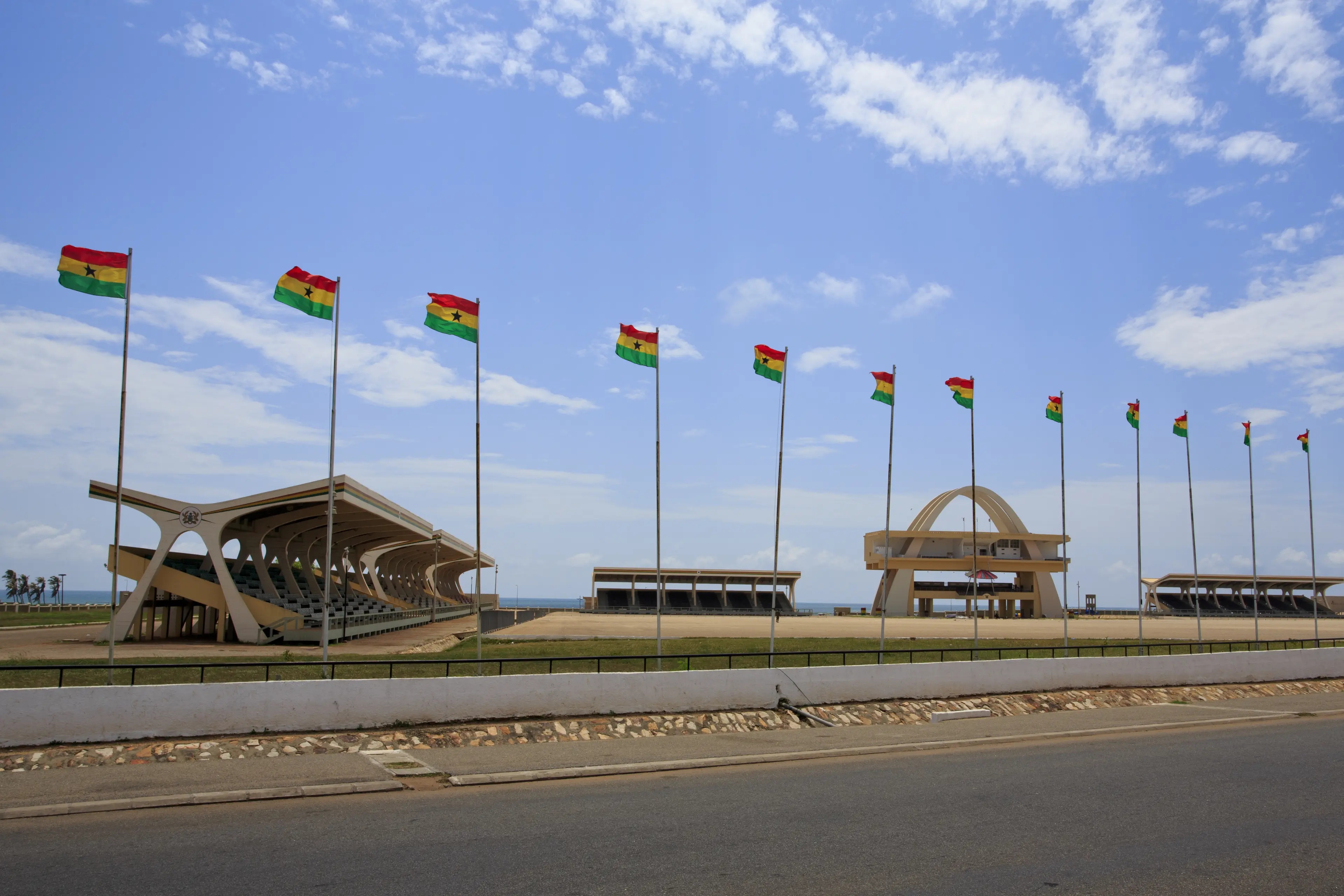
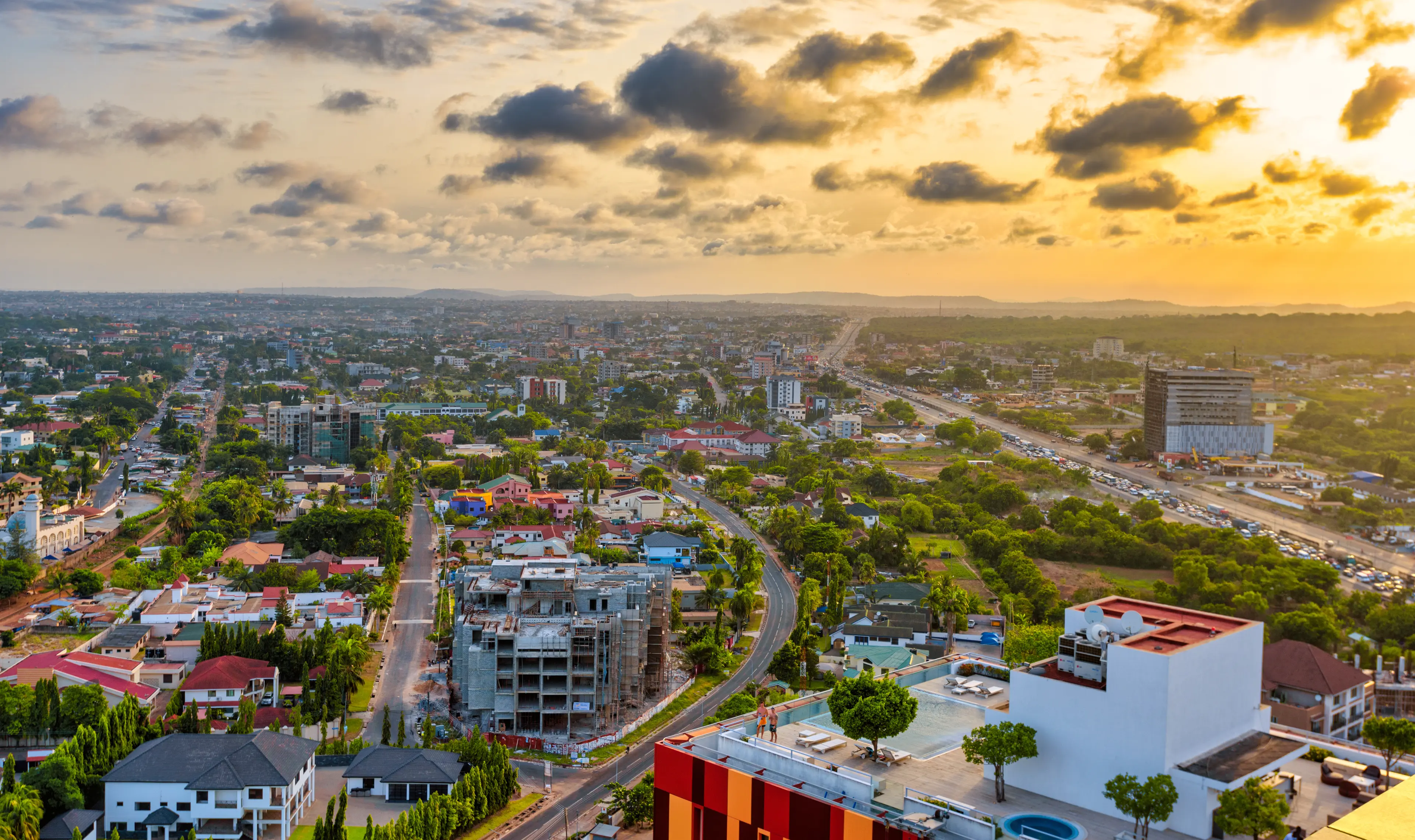
About Accra, Ghana
Experience the vibrant culture and rich history of Accra, Ghana's bustling capital. This city offers a blend of modern and traditional attractions, from the bustling Makola Market, where you can haggle for local goods, to the serene beaches of Labadi and Kokrobite. Explore the city's colonial past at the Osu Castle, or delve into Ghana's history at the National Museum. Don't miss the Kwame Nkrumah Memorial Park, dedicated to Ghana's first president. Enjoy local cuisine at a chop bar, and dance the night away at one of the city's lively nightclubs. Accra's warm climate, friendly locals, and diverse experiences make it a must-visit African destination.
4-Day Itinerary
Day 2
Historical and Cultural Immersion
Morning
Visit the Kwame Nkrumah Mausoleum and Memorial Park, dedicated to Ghana's first president and a key figure in the country's independence.
Lunch
Have lunch at a local eatery, where you can try banku and tilapia, a popular Ghanaian dish.
Afternoon
Explore the National Museum of Ghana, which houses a vast collection of Ghana's historical and cultural artifacts.
Dinner
Enjoy a romantic dinner at a rooftop restaurant, offering panoramic views of the city.
Evening
Experience Accra's vibrant nightlife at a local music venue, where you can enjoy live performances of highlife, hiplife, and gospel music.
Day 3
Artisan Crafts and Traditional Performances
Morning
Start your day with a visit to the Accra Arts Centre, a hub for local artisans and craftsmen.
Lunch
Enjoy a light lunch at a local café, sampling Ghanaian pastries and refreshing local drinks.
Afternoon
Take a guided tour of the Osu Castle, a 17th-century fort that has served as a government building in Ghana.
Dinner
Dine at a local restaurant, where you can try fufu and goat soup, a traditional Ghanaian dish.
Evening
End your day with a visit to the Centre for National Culture, where you can watch traditional dance and music performances.
Day 4
Botanical Gardens and Shopping
Morning
Visit the Aburi Botanical Gardens, a serene oasis away from the hustle and bustle of the city.
Lunch
Have lunch at a local restaurant, where you can try kenkey and fried fish, a staple Ghanaian dish.
Afternoon
Spend the afternoon at the Accra Mall, where you can shop for souvenirs and local products.
Dinner
Enjoy your final dinner in Accra at a fine dining restaurant, sampling the best of Ghanaian cuisine.
Evening
End your trip with a relaxing evening at a local jazz club, enjoying the smooth sounds of Ghanaian jazz.
Attractions in Itinerary (10)

1Makola Market
A bustling market in the heart of Accra, known for its wide array of goods from food to clothing and traditional crafts.
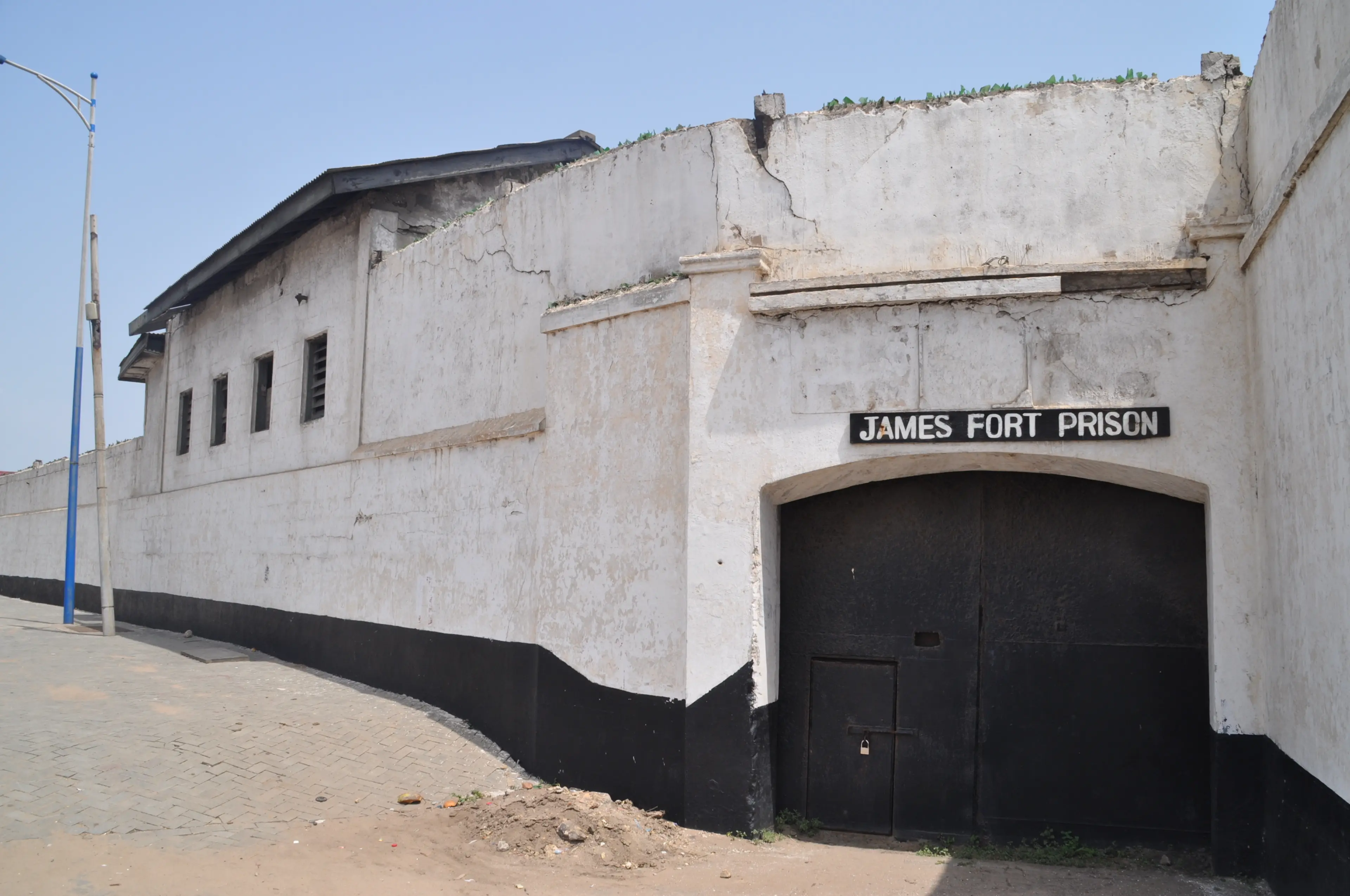
2James Fort
James Fort is a historical site located in Accra. It was built by the British as a trading post in 1673. Today, it stands as a reminder of the colonial era and the slave trade that once took place in Ghana.

3Labadi Beach
One of the most popular beaches in Accra, known for its lively atmosphere, with music, dancing, and horseback riding.

4Kwame Nkrumah Mausoleum
The final resting place of the first President of Ghana, Kwame Nkrumah. It also houses a museum detailing his life and times.

5National Museum of Ghana
Home to a vast collection of Ghana's historical and cultural treasures, including traditional crafts, fine art, archaeology, and ethnography exhibits.
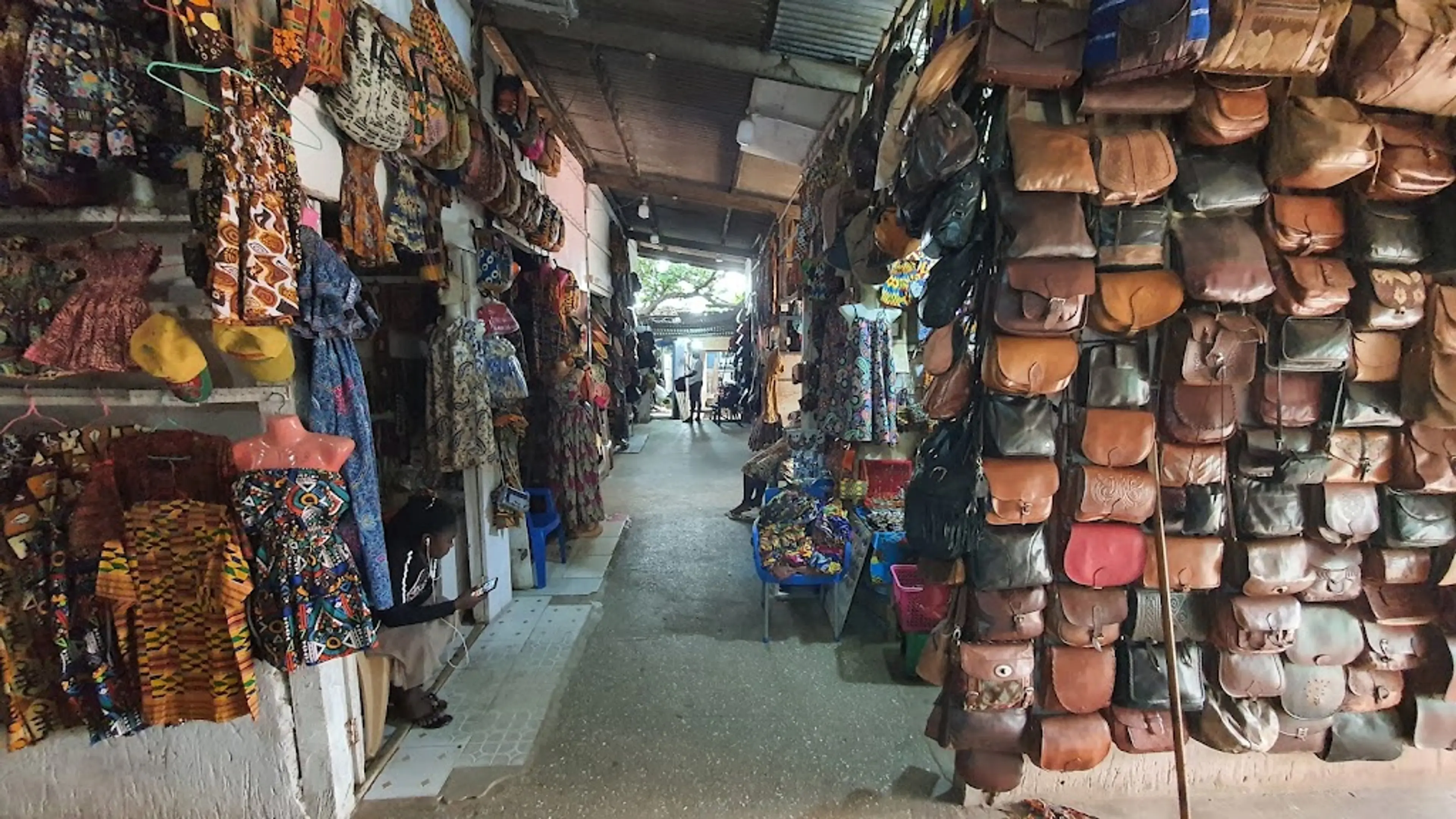
6Accra Arts Centre
A hub for Ghanaian arts and crafts, featuring numerous stalls selling a variety of handmade items, as well as a venue for traditional music and dance performances.

7Osu Castle
A 17th-century castle built by the Danish, which has served various functions over the centuries, including a presidential residence.
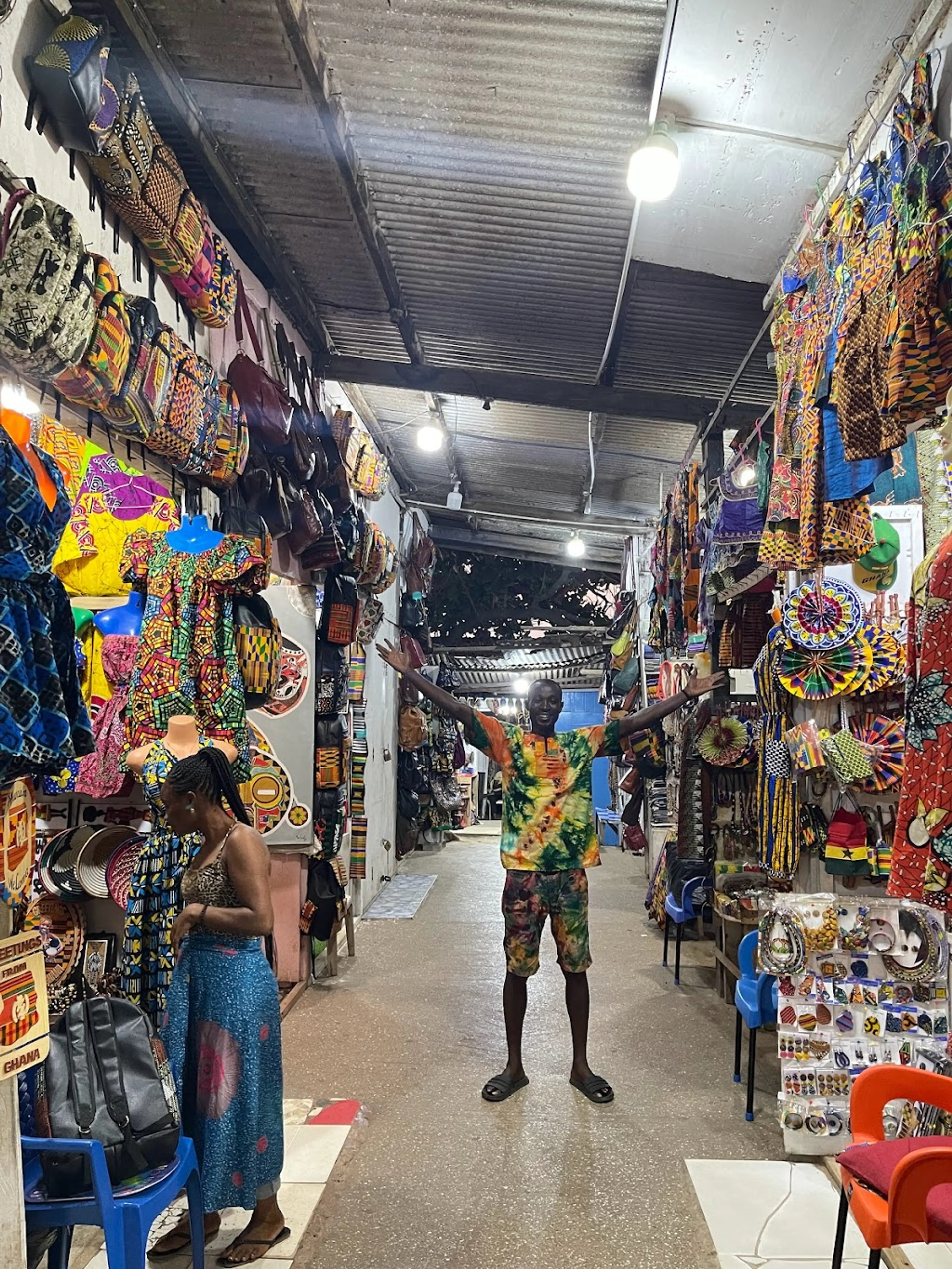
8Centre for National Culture
A hub for the display of Ghanaian culture, featuring craft shops, art galleries, and traditional performances.
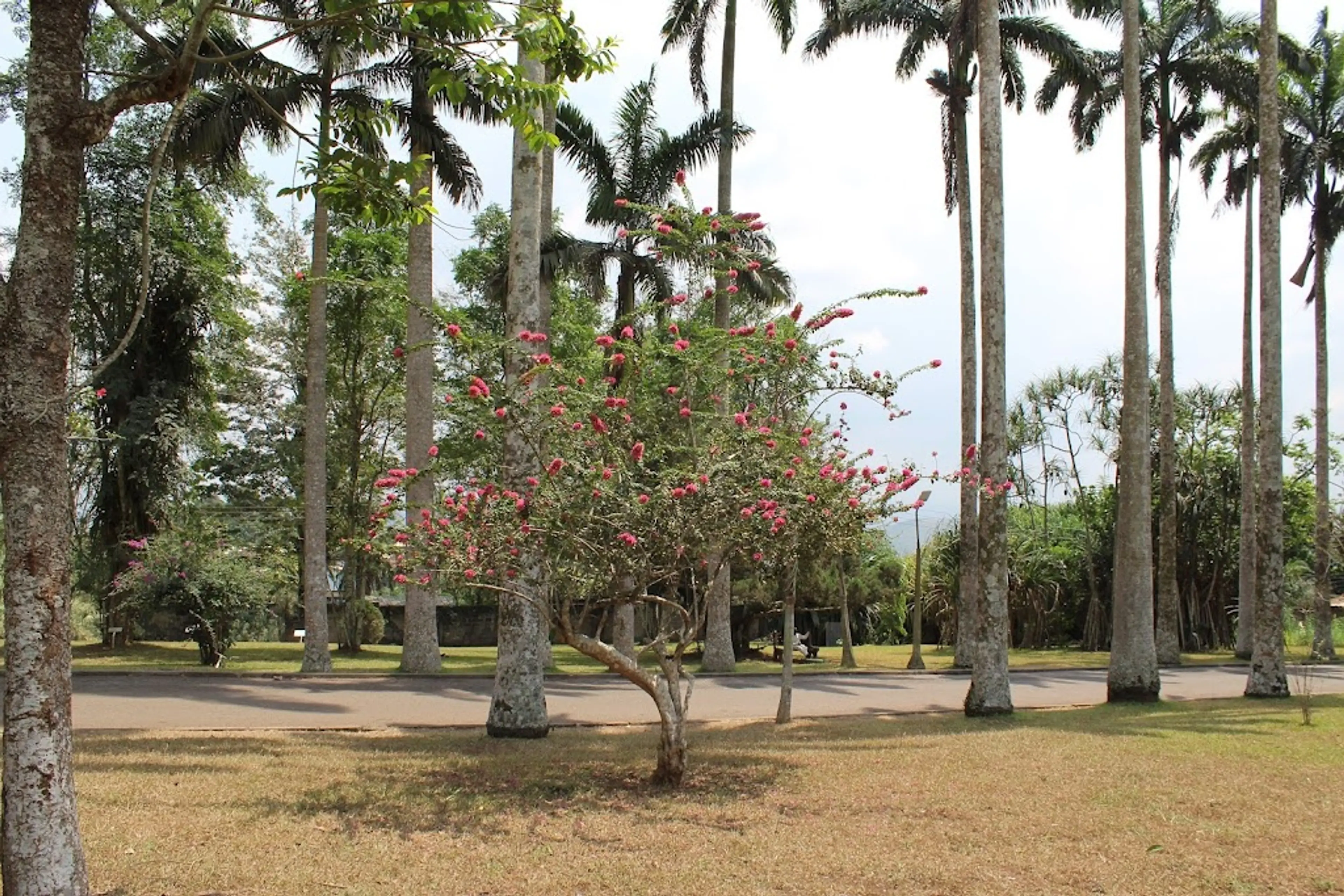
9Aburi Botanical Gardens
A beautiful garden located in the hills north of Accra, featuring a wide variety of plant species, both native and exotic.

10Accra Mall
A modern shopping mall offering a wide range of retail and dining options, as well as a cinema.
Local Food and Drinks (12)
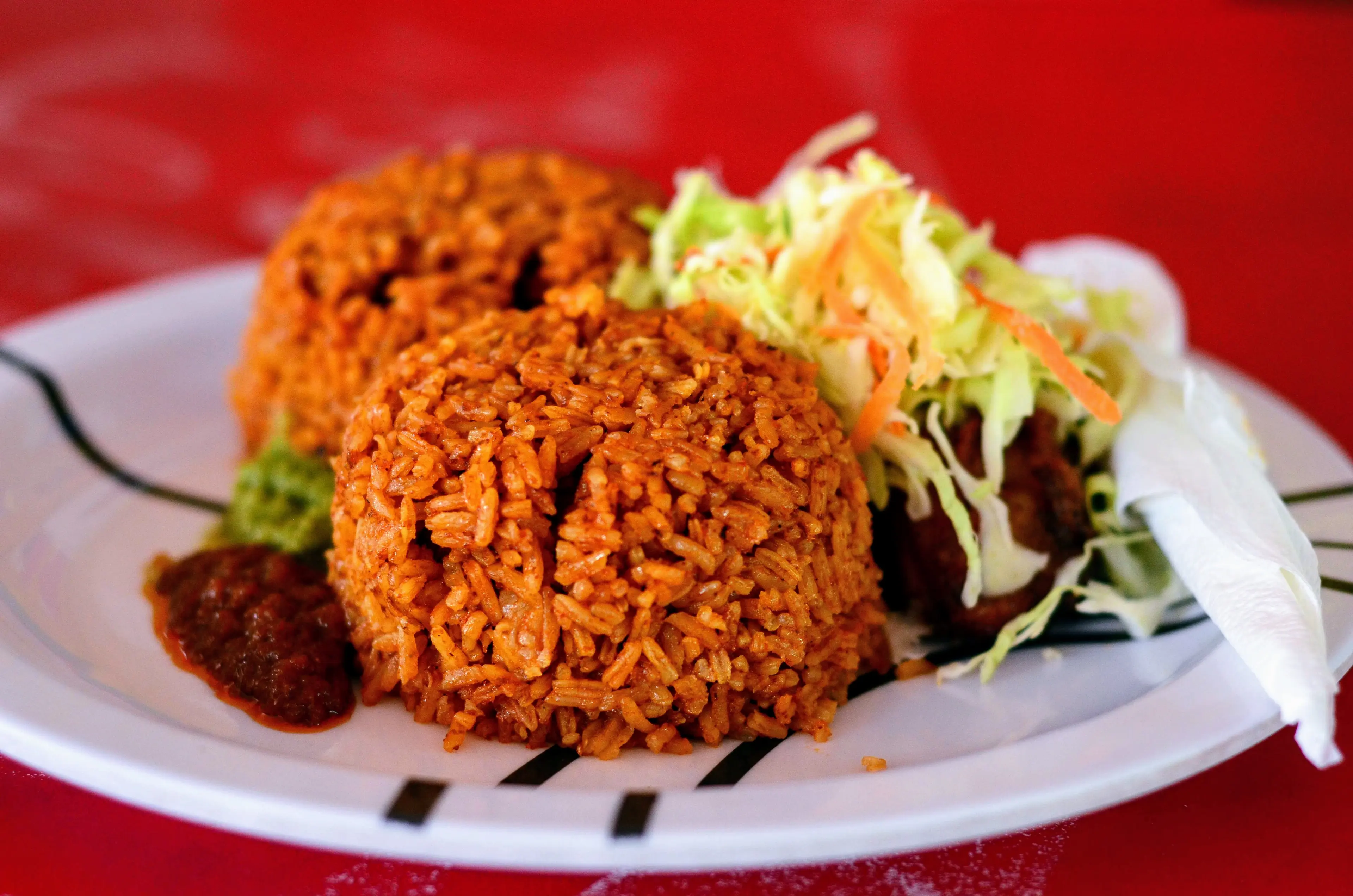
Jollof Rice
A popular West African dish made with rice, tomatoes, onions, and various spices. It is a staple in Ghanaian cuisine and is often served with chicken or fish.
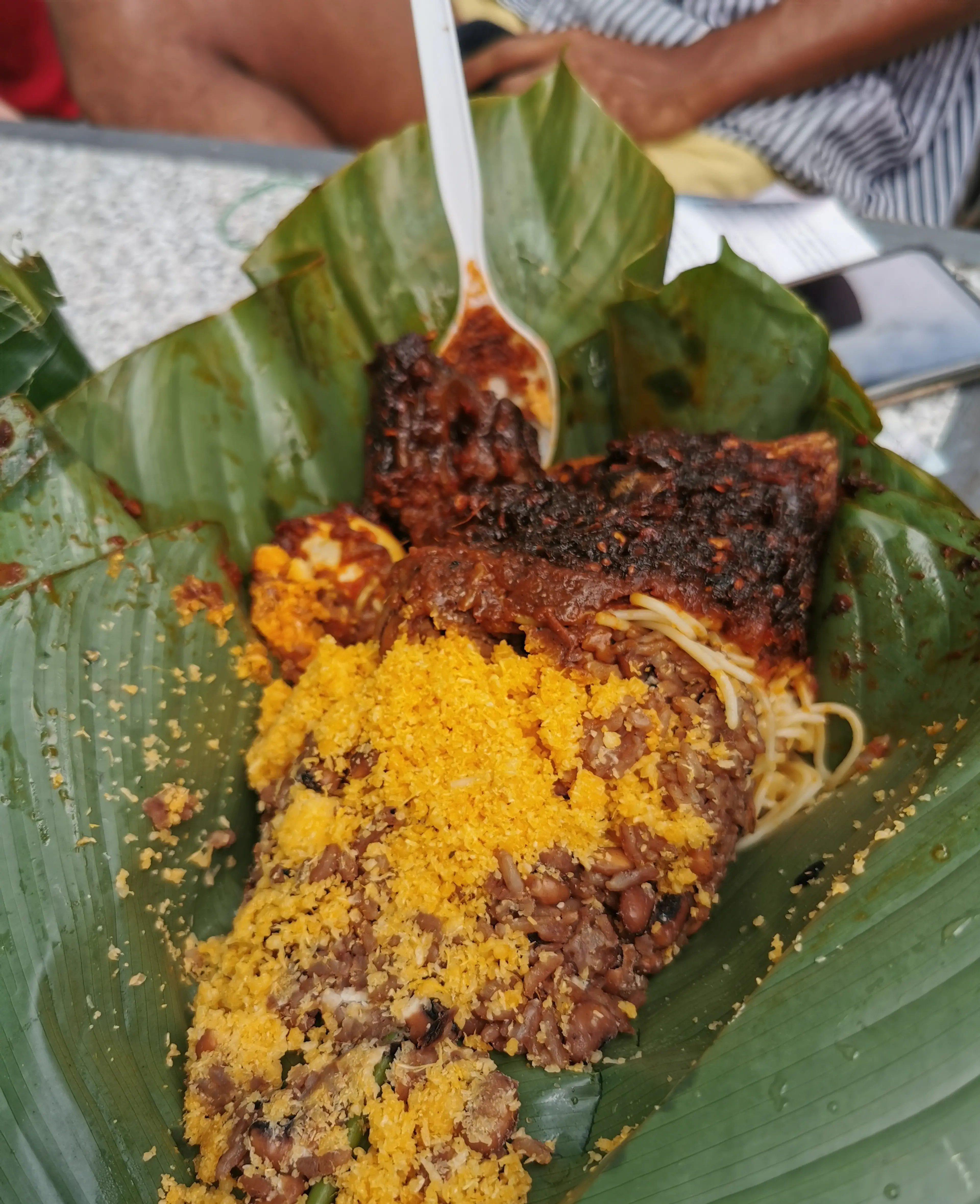
Waakye
A traditional Ghanaian dish made from rice and beans. It's usually served with a variety of accompaniments like spaghetti, boiled eggs, fried fish, and shito (a spicy black pepper sauce).
Banku and Tilapia
A classic Ghanaian dish consisting of fermented corn and cassava dough (Banku) served with grilled tilapia and a spicy pepper sauce.

Kelewele
A popular Ghanaian snack made from ripe plantains that are marinated in a mixture of spices and then deep-fried until golden and crispy.
Fufu and Goat Soup
A traditional Ghanaian meal. Fufu is a starchy accompaniment made by pounding cassava and plantain or yam, and is served with a rich and flavorful goat soup.
Red Red
A popular Ghanaian bean stew that gets its name from the red palm oil and red pepper used in its preparation. It's typically served with fried plantains.

Shito
A hot and spicy condiment made from dried seafood, chillies, garlic, ginger and other spices. It's a staple in Ghanaian cuisine and is often served with rice dishes and fried fish.
Groundnut Soup
A rich and creamy soup made from groundnuts (peanuts), tomatoes, onions, and various spices. It's often served with rice balls or fufu.
Palm Wine
A traditional Ghanaian alcoholic beverage made from the sap of various species of palm tree. It's a popular drink in rural areas and is often served at social gatherings and festivals.
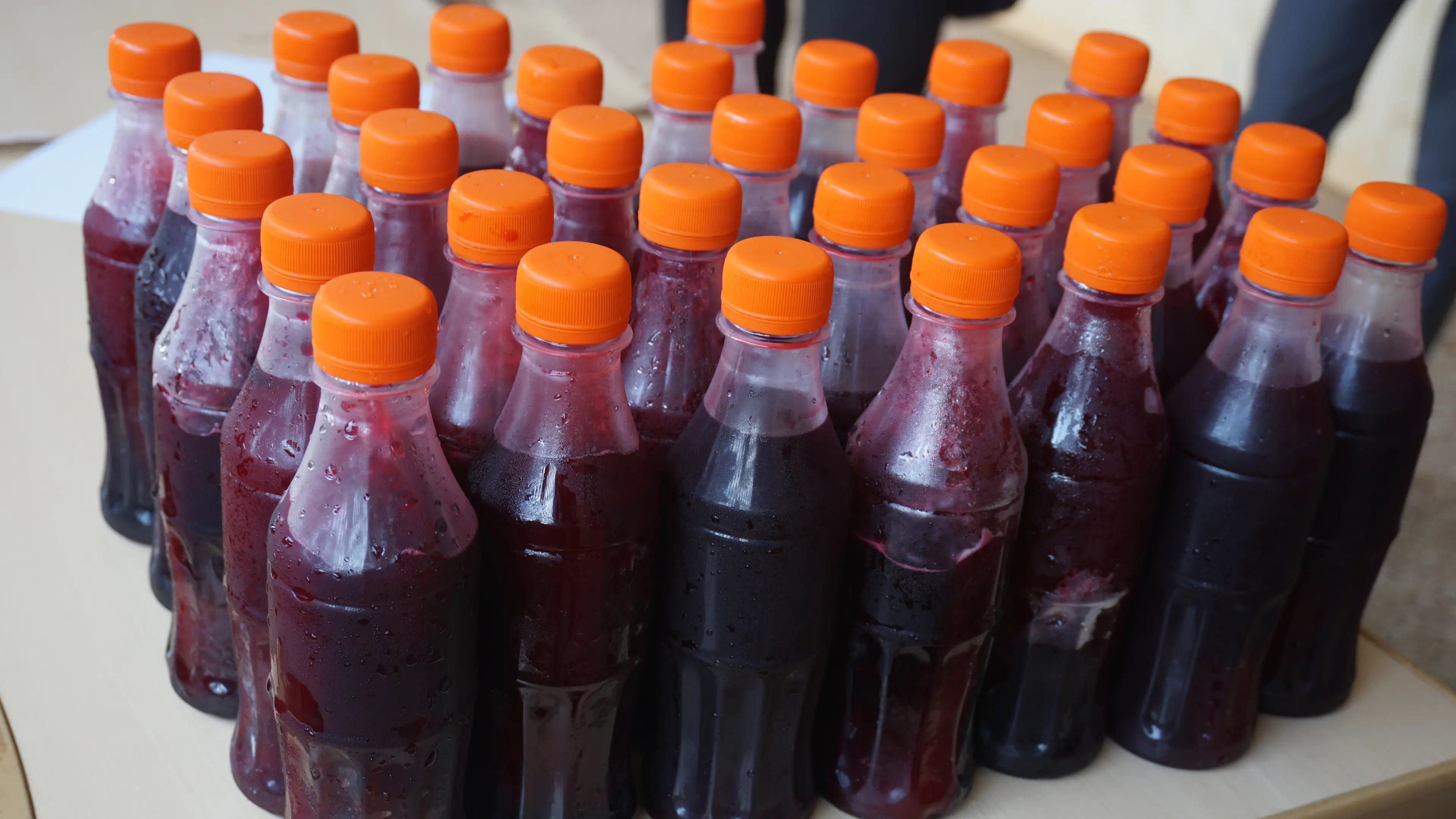
Sobolo
A refreshing Ghanaian drink made from hibiscus flowers, ginger, and sugar. It's often served chilled and is popular for its health benefits.
Pito
A traditional Ghanaian beer made from fermented millet or sorghum. It's a popular drink in northern Ghana and is often served at social events.
Akple and Okro Soup
A traditional dish from the Volta region of Ghana. Akple is a type of dumpling made from cornmeal, and it's served with a slimy soup made from okra.
Best time to visit
The best time to visit Accra, Ghana as a tourist is during the dry season, which runs from November to April. During this period, the weather is generally warm and sunny with less humidity, making it perfect for outdoor activities and sightseeing. However, it's also the peak tourist season, so you might want to book your accommodations and tours in advance.
National holidays
Here you can find the national calendar of all public holidays for the year. These dates are subject to change as official changes are announced, so check back regularly for updates.
| Date | Day | Holiday Name |
|---|---|---|
January 1 | Mon | New Year's Day |
January 7 | Sun | Constitution Day |
March 6 | Wed | Independence Day |
March 29 | Fri | Good Friday |
April 1 | Mon | Easter Monday |
April 10 | Wed | Eid ul-Fitr |
May 1 | Wed | May Day |
June 17 | Mon | Eid al-Adha |
August 4 | Sun | Founders' Day |
August 5 | Mon | Founders' Day observed |
September 21 | Sat | Kwame Nkrumah Memorial Day |
September 23 | Mon | Kwame Nkrumah Memorial Day observed |
December 6 | Fri | Farmer's Day |
December 25 | Wed | Christmas Day |
December 26 | Thu | Boxing Day |
How to get around
Taxi
Taxis are a common mode of transport in Accra. They are easily identifiable by their yellow fender. You can hail them from the roadside or find them at designated taxi ranks. It's advisable to negotiate the fare before the journey starts as most taxis do not have meters.
Tro Tro
Tro Tros are minibuses that operate on specific routes throughout the city. They are a popular and affordable way to get around, although they can be crowded. Tro Tros usually have a conductor who shouts out the destination and collects fares.
Ridesharing
Ridesharing services like Uber and Bolt operate in Accra. They offer a convenient and safe way to get around the city. You can book a ride using their respective mobile apps. The fare is calculated based on the distance and time of travel.
Car Rental
If you prefer to drive yourself, there are several car rental companies in Accra. You will need a valid international driver's license. Traffic in Accra can be heavy, especially during peak hours, and road conditions vary.
City Bus
Accra has a public bus system operated by Metro Mass Transit. The buses are larger and less crowded than Tro Tros, but they also operate on fixed routes. They are a good option for longer distances within the city.
Bicycle
Cycling is not very common in Accra due to the heavy traffic and lack of dedicated cycling lanes. However, some areas of the city are more bike-friendly. It's a good option for short distances and to avoid traffic jams.
Motorcycle Taxi
Motorcycle taxis, locally known as 'Okada', are a fast way to get around in Accra, especially during traffic jams. However, they are considered less safe due to the risks associated with motorbike riding.
Foot
Walking is a viable option for short distances, especially in the city center where attractions are close to each other. However, be aware that pedestrian infrastructure like sidewalks and crosswalks may be lacking in some areas.
Important information
Currency GHC
Time zoneUTC 0
Driving sideRight
Emergency phoneAmbulance: 776111-5; Fire: 192; Police: 999, 171
Drinking waterOpt for bottled water
Power sockets
Voltage230 V
Things to know about Accra, Ghana as a first time visitor
1
Accra is the capital city of Ghana and is known for its vibrant culture and friendly locals.
2
The official language is English, but many locals also speak Twi, Ga, and Ewe.
3
The currency used in Accra is the Ghanaian cedi (GHS). It's advisable to have some local currency for small purchases, although credit cards are widely accepted in many places.
4
Accra has a tropical climate. The average temperature is around 81°F (27°C), but it can get as hot as 91°F (33°C) during the dry season (November to April).
5
The rainy season in Accra is from April to mid-July and from September to October. It's advisable to carry an umbrella or raincoat during these periods.
6
Accra is generally safe for tourists, but like any city, it's important to be aware of your surroundings and keep your belongings secure.
7
Public transportation in Accra includes buses, shared taxis, and tro-tros (minibuses). Uber is also available in the city.
8
Ghana operates on Greenwich Mean Time (GMT). It does not observe daylight saving time.
9
Ghana uses Type G power plugs, the same as the UK. If your devices use different plugs, you'll need an adapter.
10
Tap water in Accra is not safe to drink. It's recommended to drink bottled water.
11
Accra has a vibrant nightlife with many clubs, bars, and live music venues. However, it's advisable to avoid walking alone at night.
12
Ghanaian cuisine is rich and diverse. Try local dishes like jollof rice, banku, and fufu.
13
Bargaining is common in markets and some shops in Accra. It's considered part of the shopping experience.
14
Ghanaians are generally very friendly and hospitable. Don't be surprised if locals strike up a conversation with you.
15
It's customary to greet people with a handshake. Using the right hand is considered respectful.
16
Dress modestly, especially when visiting religious sites. Women should avoid wearing revealing clothes.
17
It's advisable to get vaccinated for diseases like yellow fever, typhoid, and hepatitis A and B before traveling to Accra.
18
Accra has a mix of modern and traditional architecture. Be respectful when photographing people or religious sites.
19
Internet access is widely available in Accra, with many hotels, restaurants, and cafes offering free Wi-Fi.
20
Tipping is not mandatory in Accra, but it's appreciated. A tip of 10% is customary in restaurants if service charge is not included in the bill.
Packing List
Clothing
Lightweight clothing
Underwear
Socks
Swimwear
Sunglasses
Hat for sun protection
Comfortable walking shoes
Sandals
Light jacket or sweater for cooler evenings
Toiletries
Travel-sized shampoo and conditioner
Body wash or soap
Toothbrush and toothpaste
Deodorant
Razor and shaving cream
Sunscreen
Insect repellent
First aid kit
Prescription medications
Hand sanitizer
Travel documents and essentials
Passport
Visa if required
Driver's license
Health insurance card
Travel insurance documents
Hotel and transportation reservation confirmations
Local currency
Credit and debit cards
Emergency contact information
Electronics and gadgets
Smartphone
Charger for smartphone
International power adapter
Camera
Charger for camera
Headphones
Portable power bank
Miscellaneous items
Travel pillow
Earplugs
Eye mask
Snacks
Water bottle
Books or e-reader for entertainment
Travel guidebook
Map of Accra
Phrasebook or language app
Reusable shopping bag
Umbrella or rain poncho
Weather Conditions
Accra, the capital city of Ghana, experiences a tropical savanna climate, which means it's generally hot and humid throughout the year. Average temperatures range from 24°C (75°F) to 30°C (86°F), so lightweight, breathable clothing is recommended for your visit. The city experiences two rainy seasons, the first from April to mid-July and the second from late September to November. If you're planning to visit during these periods, be sure to pack a raincoat or umbrella. Despite the rain, these periods can still be a good time to visit as the rain often falls in short, heavy showers, leaving plenty of time to explore. The driest months are from November to March, which is also when the Harmattan winds blow from the Sahara Desert, causing dusty skies and cooler temperatures, especially in the evenings. If you're visiting during this period, you might want to pack a light jacket or sweater for the cooler evenings and sunglasses to protect your eyes from the dust. Regardless of when you visit, don't forget to pack sun protection, such as a hat, sunglasses, and sunscreen, as the sun can be quite strong all year round. Also, remember to stay hydrated, especially during the hot afternoons. In terms of activities, the weather in Accra allows for year-round sightseeing. However, if you're interested in outdoor activities like wildlife viewing or hiking, the drier months might be more comfortable. On the other hand, the rainy season can be a great time to experience the city's vibrant culture indoors, with many museums, galleries, and restaurants to explore. Remember, the weather can change, so it's always a good idea to check the forecast before your trip to make any necessary adjustments to your packing list. Enjoy your trip to Accra!
| Month | Hi / Lo (°C) | Weather Overview |
|---|---|---|
January | 31° / 23° | January is one of the hottest months in Accra, with temperatures ranging from 23°C to 31°C. It's a great time to visit the beaches, but remember to stay hydrated. |
February | 32° / 24° | February is also quite hot, with temperatures slightly higher than January. It's a perfect time for outdoor activities, but don't forget your sunscreen. |
March | 32° / 24° | March continues the hot trend, with temperatures similar to February. It's a great time to explore the city's outdoor markets and historical sites. |
April | 31° / 24° | April sees a slight drop in temperature, but it's still quite warm. It's a good time to visit the national parks and wildlife reserves. |
May | 31° / 24° | May is the start of the rainy season, but temperatures remain warm. It's a good time to visit museums and indoor attractions. |
June | 30° / 23° | June is in the middle of the rainy season, with temperatures ranging from 23°C to 30°C. It's a good time to explore the city's indoor attractions and enjoy local cuisine. |
July | 29° / 23° | July is the coolest month in Accra, with temperatures dropping slightly. It's a great time to explore the city without the intense heat. |
August | 29° / 23° | August continues the cool trend, with temperatures similar to July. It's a perfect time to visit the historical sites and enjoy the local festivals. |
September | 30° / 23° | September marks the end of the rainy season, with temperatures starting to rise again. It's a good time to visit the beaches and enjoy water sports. |
October | 31° / 24° | October is quite warm, with temperatures ranging from 24°C to 31°C. It's a great time to explore the city's outdoor markets and historical sites. |
November | 32° / 24° | November is one of the hottest months in Accra, with temperatures similar to February. It's a perfect time for outdoor activities, but don't forget your sunscreen. |
December | 31° / 23° | December is also quite hot, with temperatures slightly lower than November. It's a great time to visit the beaches, but remember to stay hydrated. |
Did you know?
Places near by Accra, Ghana

Aburi Botanical Gardens
A beautiful garden located on a highland for nature lovers.
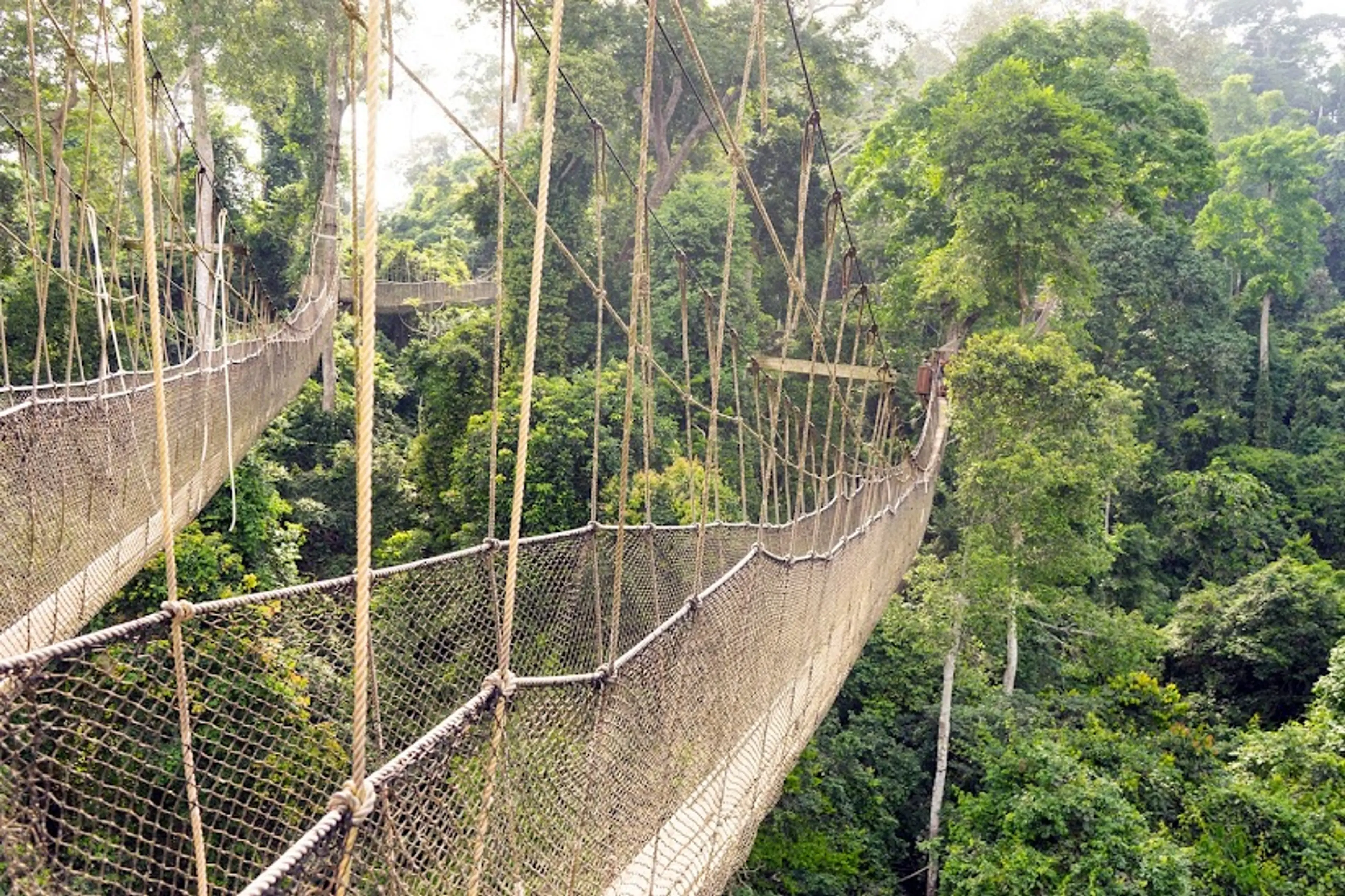
Kakum National Park
A dense tropical rain forest in southern Ghana. The park is home to over 300 bird species, butterflies, and endangered mammals like the Diana monkey.

Elmina Castle
A UNESCO World Heritage Site, this castle was a significant node in the tragic trans-Atlantic slave trade.
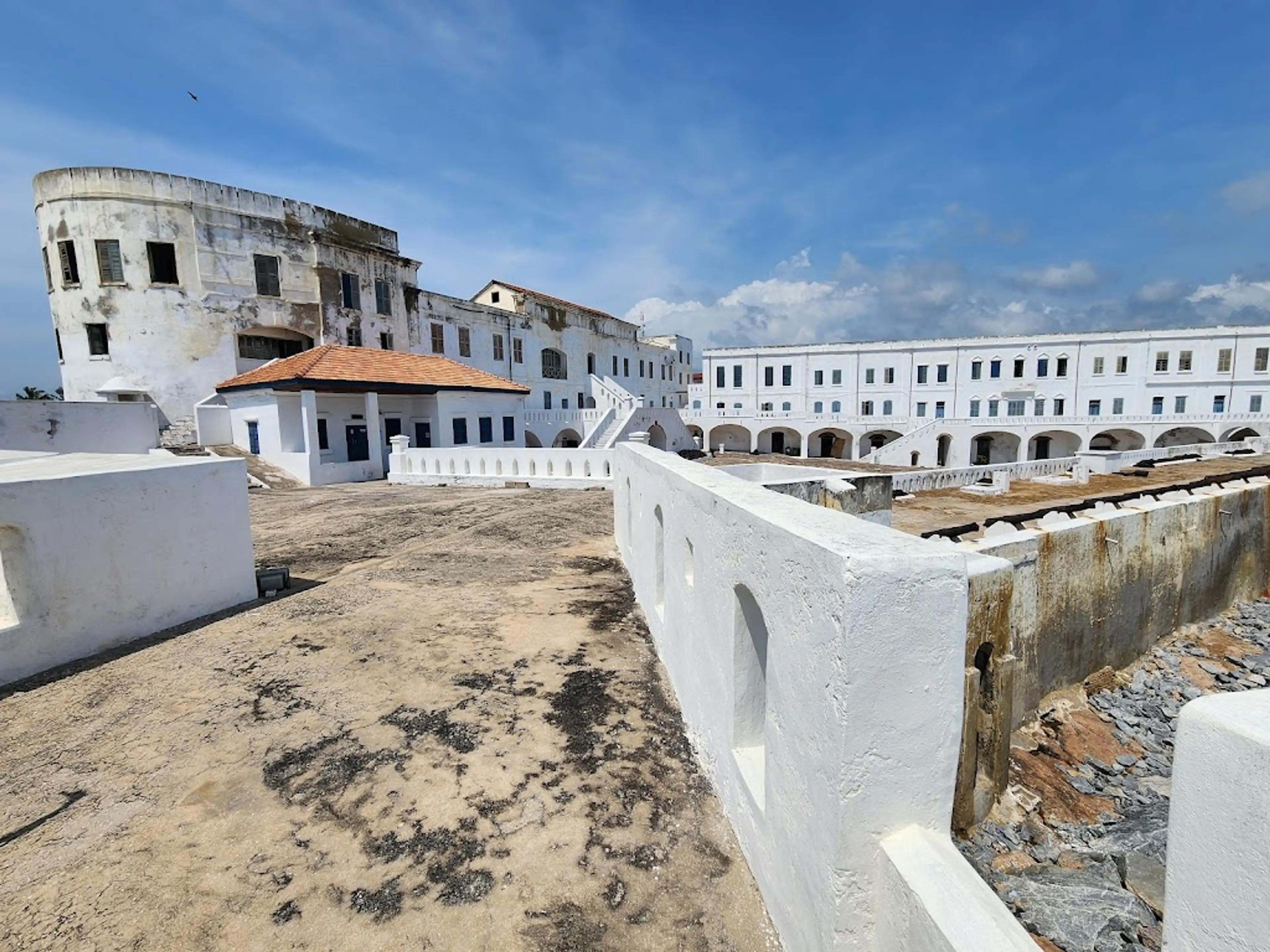
Cape Coast Castle
Another UNESCO World Heritage Site, this castle was one of about forty 'slave castles' built by European traders.
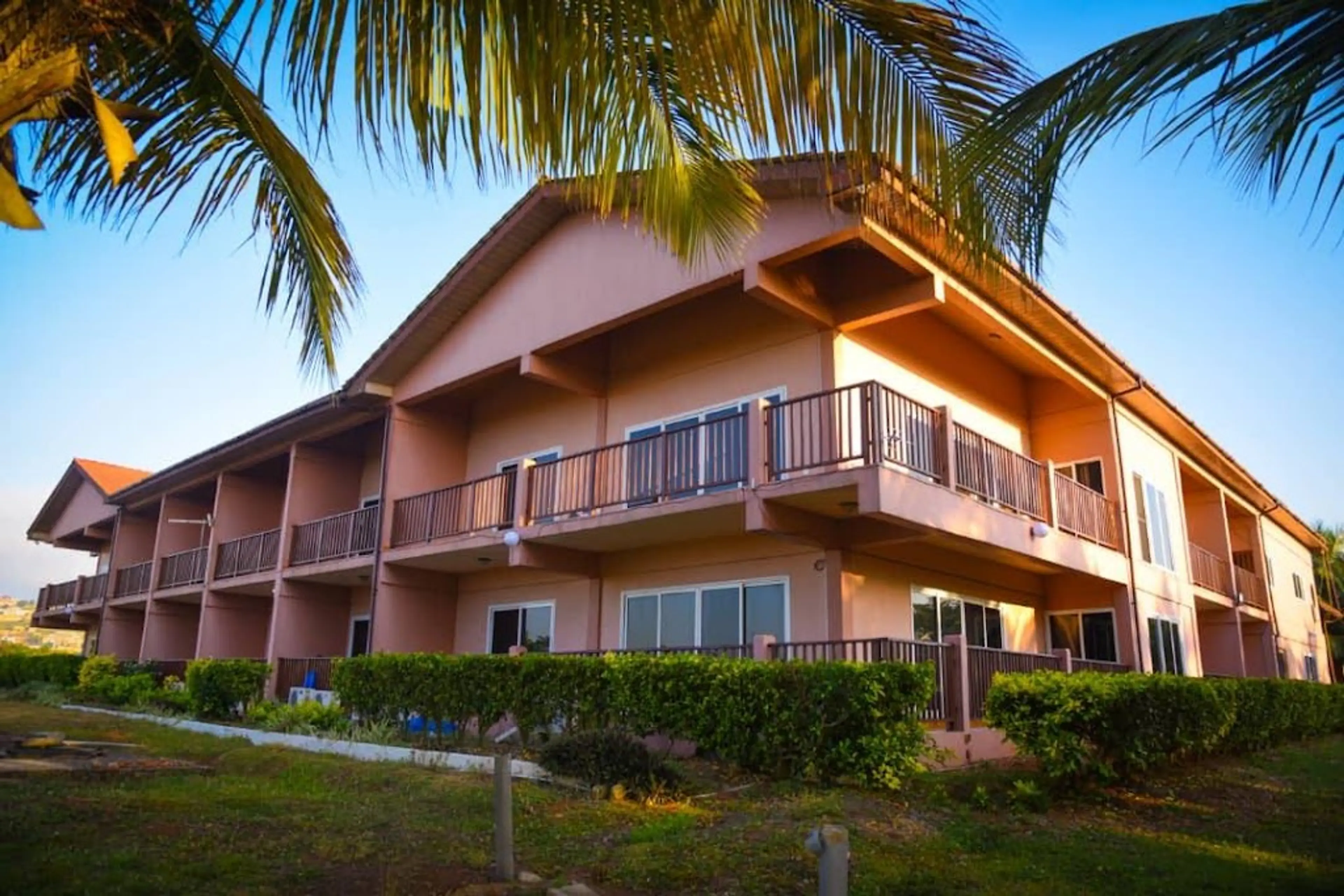
Bojo Beach
A beautiful beach resort located on the outskirts of Accra. It's a perfect place for relaxation and has a restaurant that serves local and continental dishes.
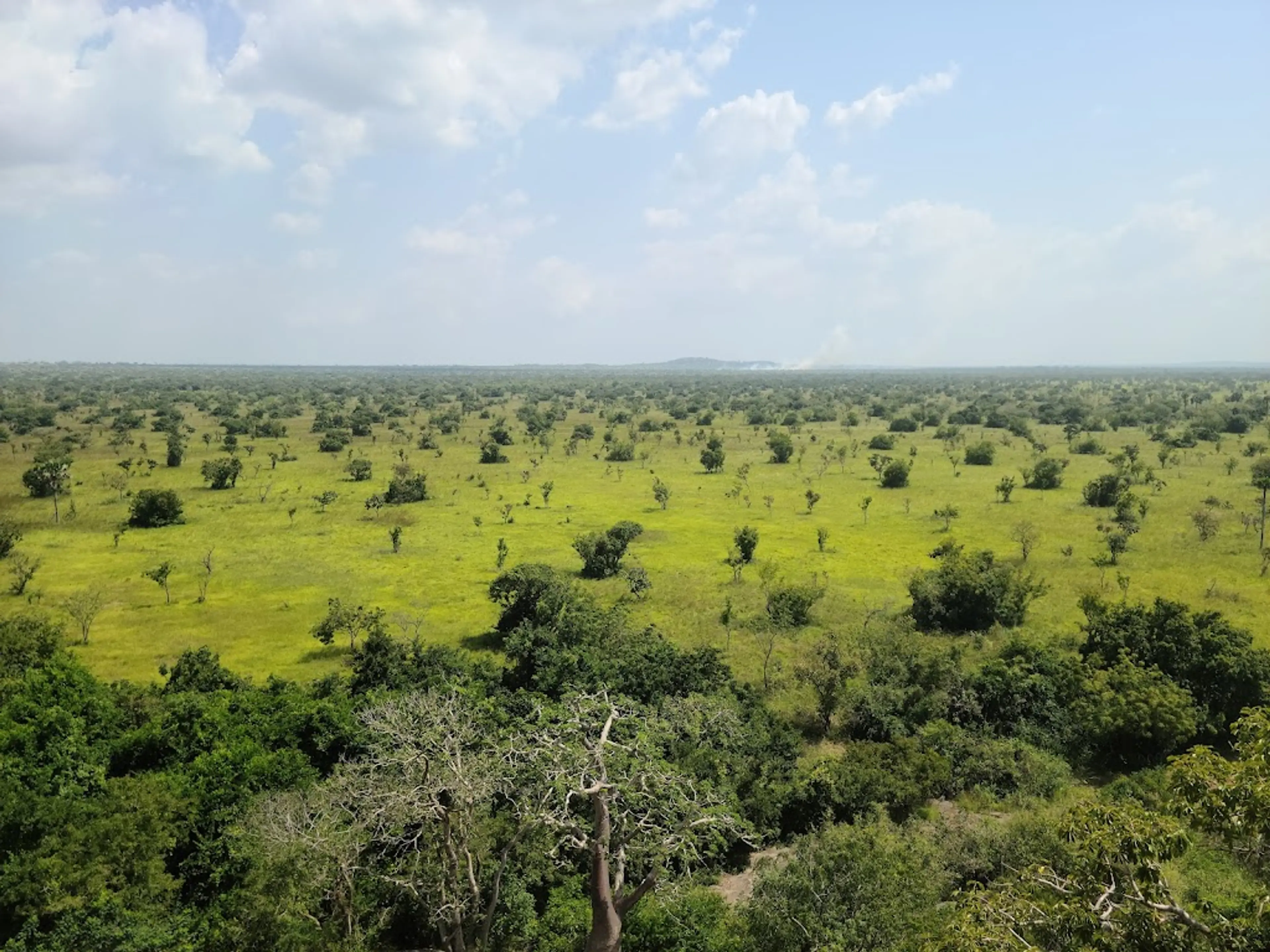
Shai Hills Resource Reserve
A wildlife park where you can see baboons, antelopes, birds and have a great hiking experience.
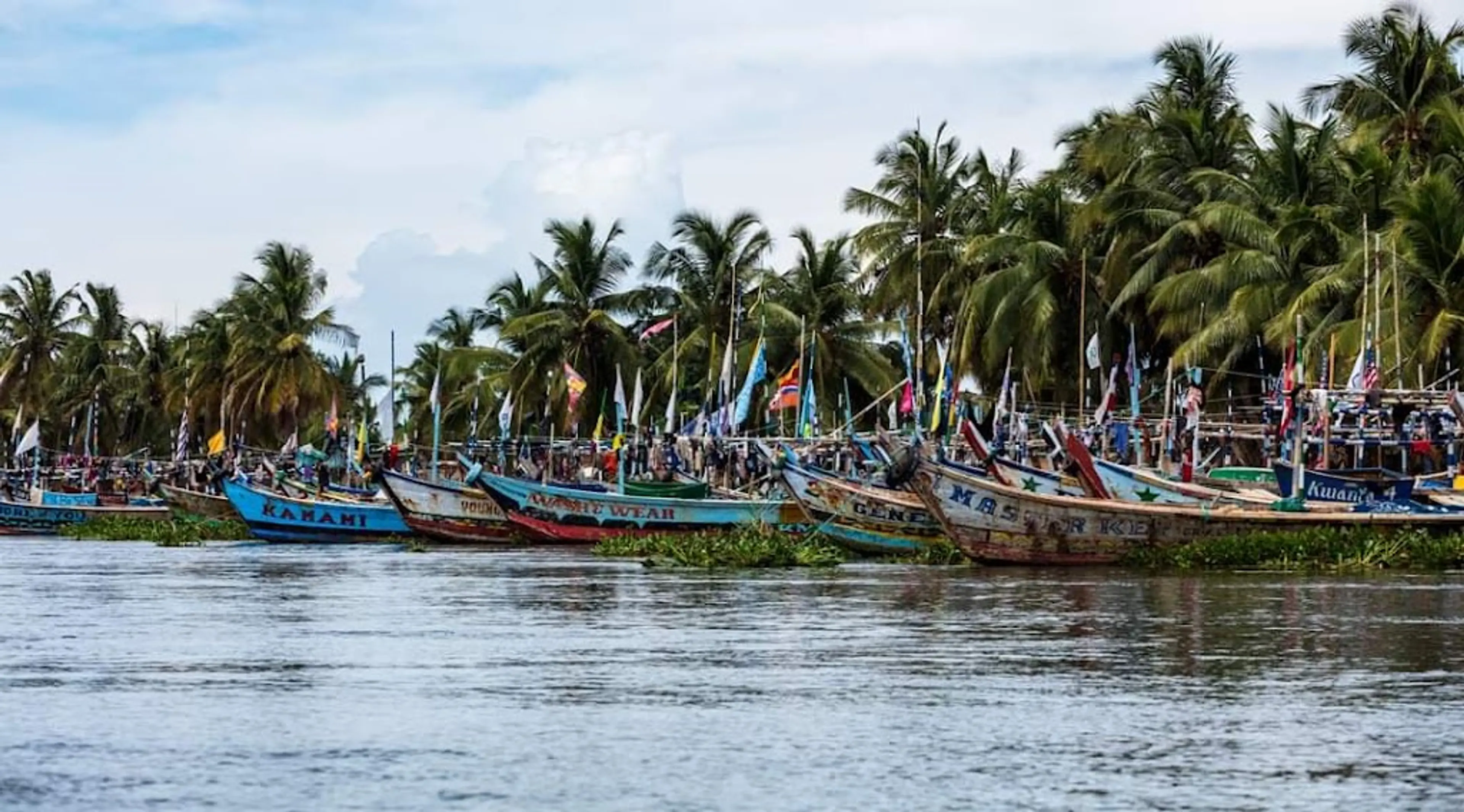
Ada Foah
A town on the southeast coast of Ghana, where the Volta River meets the Atlantic Ocean. It's known for water sports and birdwatching.
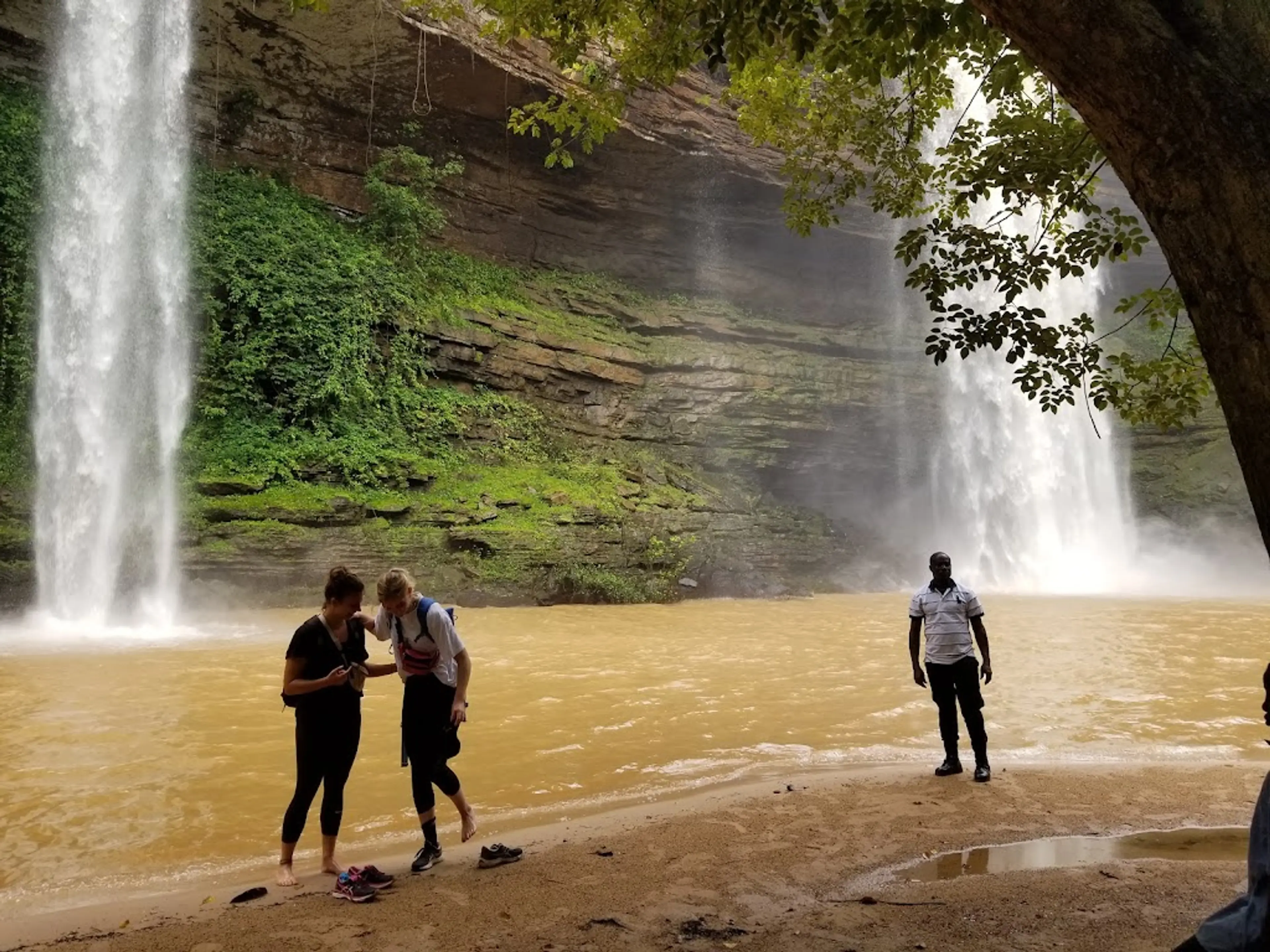
Boti Falls
A beautiful waterfall located in the Eastern Region of Ghana. It's a twin waterfall (male and female) and is surrounded by the beautiful Boti Forest Reserve.

Akosombo Dam
A massive hydroelectric dam on the Volta River. It's also a great spot for picnics and boat rides.
